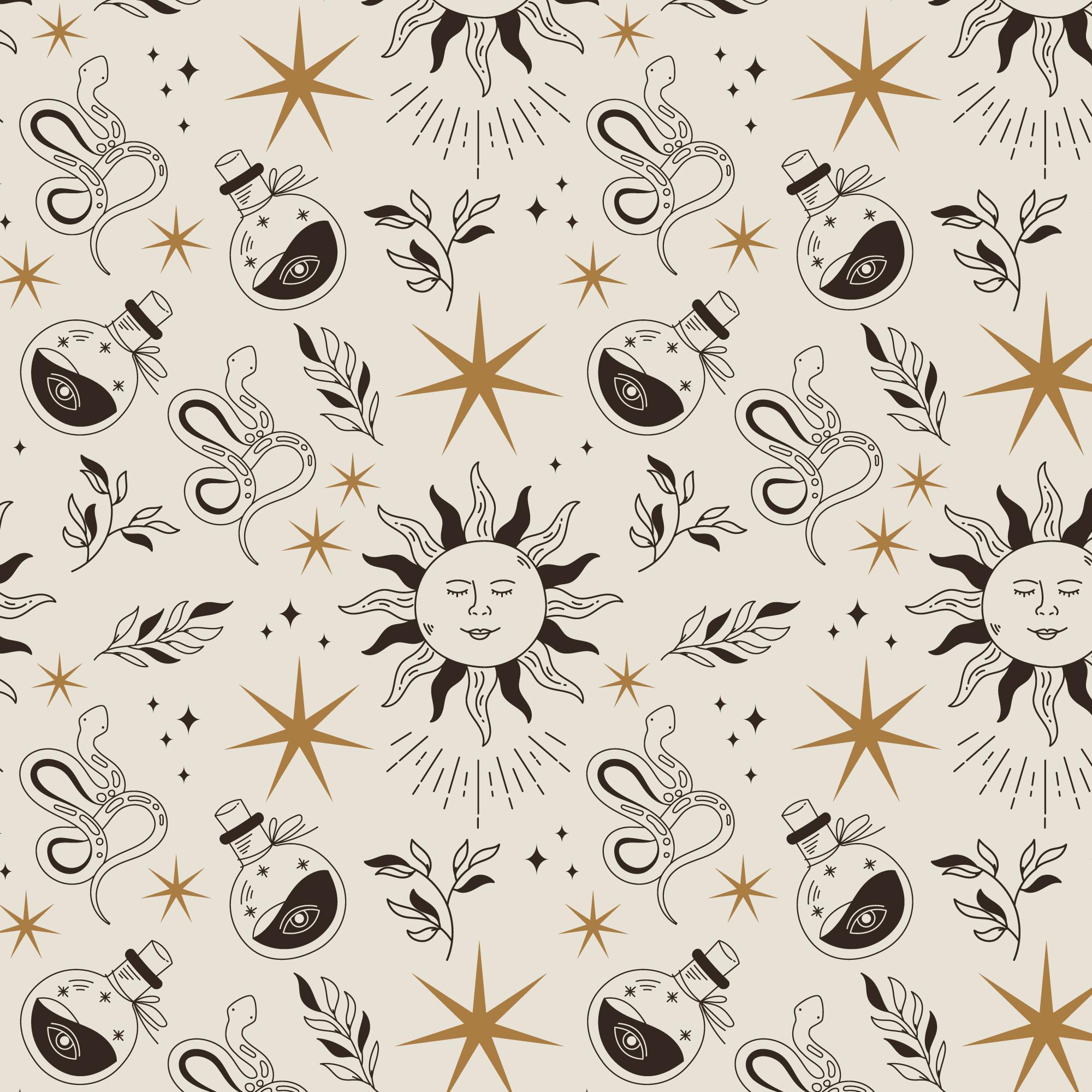
Tarot Cards as Feelings
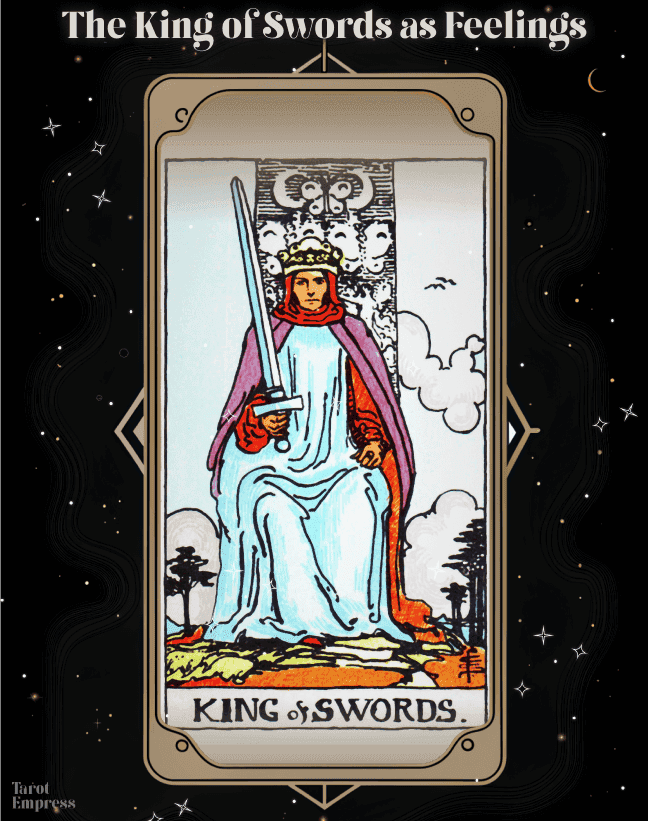
King of Swords as Feelings: A Deep Dive into Upright and Reversed Interpretations
The King of Swords represents the epitome of intellect and authority. He is a figure of clear thinking, rationality, and truth, always approaching life with a sharp mind and keen perception. This person values honesty and integrity above all, cutting through the noise with precision and wisdom. He is the kind of person who can solve complex problems with ease and offers insightful advice without hesitation. But what does the King of Swords as feelings represent, especially in terms of how someone feels about you? If this powerful figure has appeared in a reading to reveal more about your emotions and the feelings of others, read on to uncover the profound insights the tarot has in store for you!
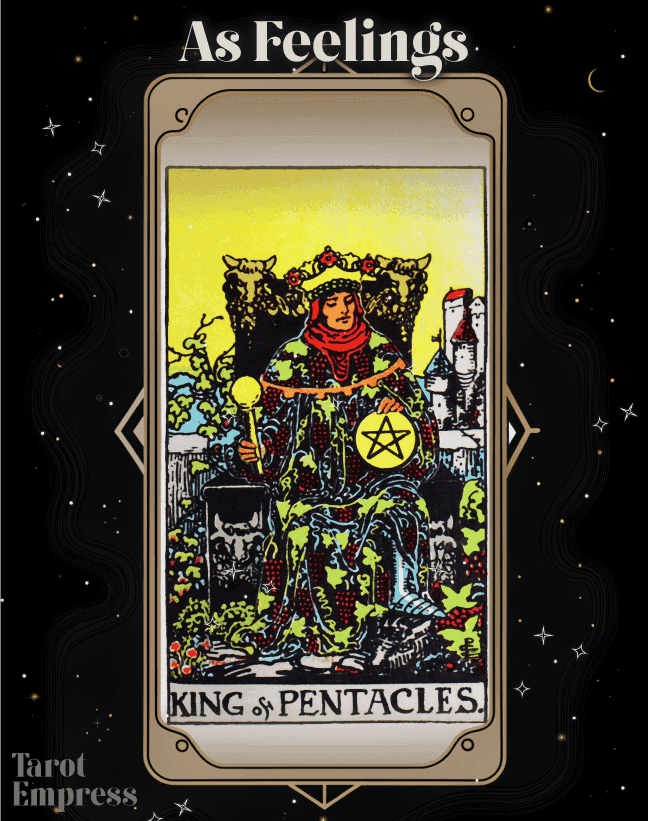
King of Pentacles as Feelings: Reversed & Upright Meaning of Stability and Security
When drawn in tarot readings, the King of Pentacles represents a rich collection of feelings, particularly when we seek insights into our emotional wellbeing and relationships. Unlike the erratic and fleeting aura of some other cards, the King of Pentacles as feelings suggests a strong foundation and steadfastness that permeates our emotional landscape.
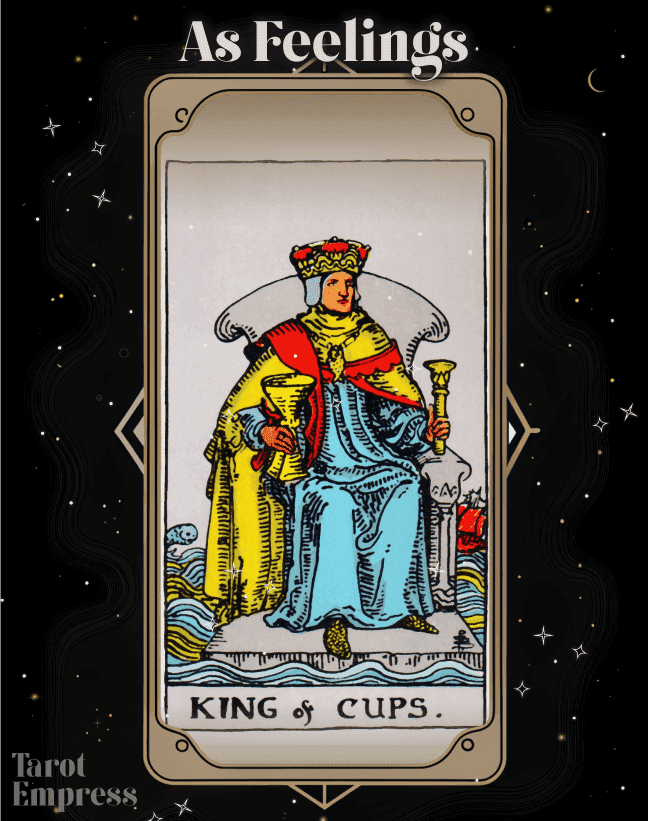
King of Cups as Feelings: Reversed & Upright Meaning of Emotional Depth
In the mystical landscapes of tarot, the King of Cups stands as a significant figure of emotional wisdom and balance. This card, with its profound insights into feelings, becomes a guide for understanding the heart's complexities, whether in love, friendships, or personal growth. By examining the King of Cups in its upright and reversed forms, we gain valuable perspectives on managing the often turbulent sea of our emotions.
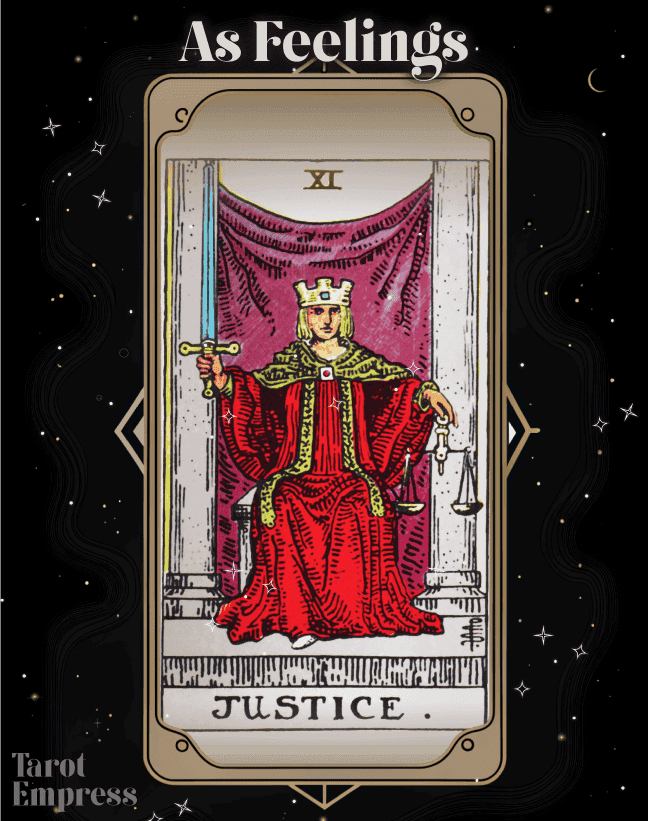
Justice as Feelings: Reversed & Upright Meaning of Fairness and Truth
When we think about the Justice card in relation to feelings, we step into a space of introspection and ethical reflection. It challenges us to question how we balance emotion and logic in our personal interactions. Whether the card appears upright or reversed, it offers profound insights into our emotional landscape and our relationships.

Judgement as Feelings: Reversed & Upright Meaning of Clarity and Awakening
When considering Judgement as feelings, we engage with a card that speaks to profound personal awakenings, assessments of emotional landscapes, and insightful realizations. By understanding its implications, both when upright and reversed, we can gain insights into the dynamic nature of our personal interactions and emotional states. This card invites reflection on how attuned we are to our inner voices and the emotional truths that unfold.
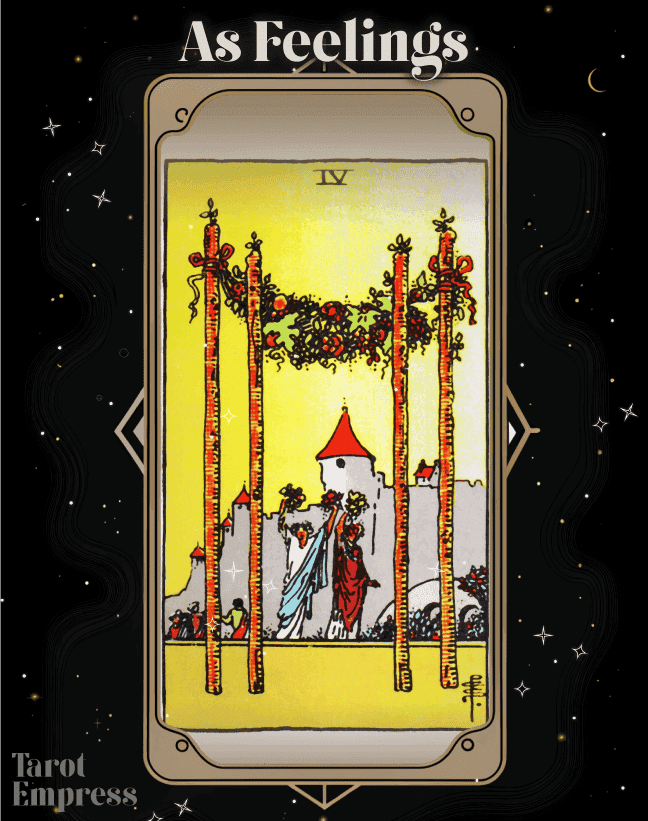
Four of Wands as Feelings: Reversed & Upright Meaning of Joy, Unity, and Stability
Four of Wands card is a symbol of celebration, harmony, and a sense of completion. When we consider the 4 of Wands as feelings, it invites us to reflect on emotions that stem from unity, joy, and mutual achievements. This card elegantly transitions from the bright promise of its upright position to the more intricate layers revealed when reversed.
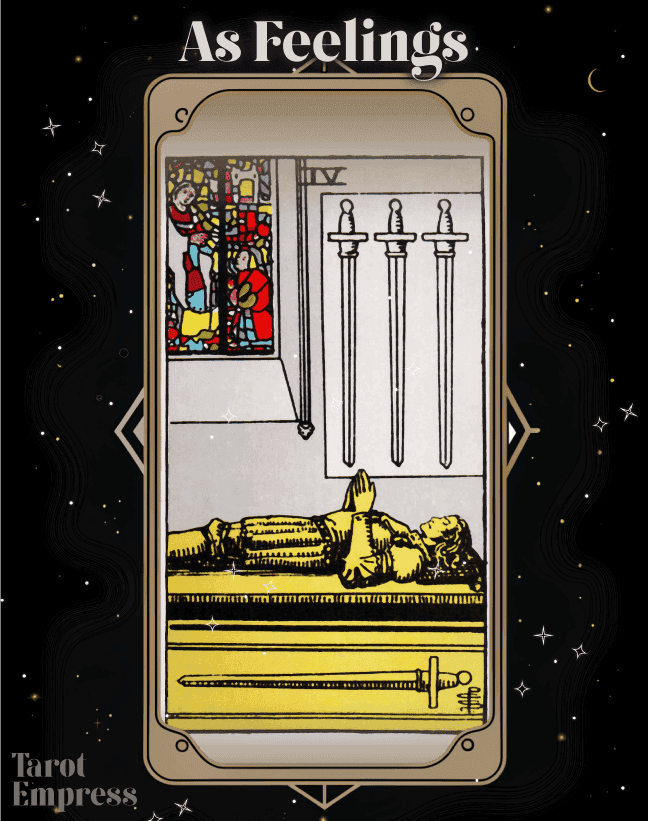
Four of Swords as Feelings: Reversed & Upright Meaning of Rest and Recovery
Each tarot card offers a unique lens through which to view the emotional landscape of life. The 4 of Swords as feelings stands as a notable card of tranquility and introspection. It prompts us to pause and reflect on the quieter emotions, offering a moment of respite in the fast-paced rhythm of everyday life.
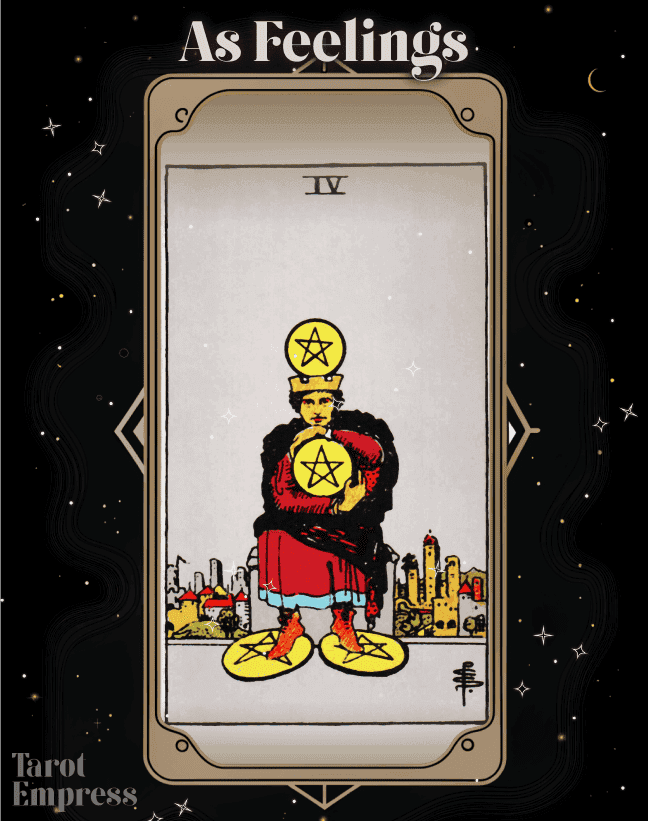
Four of Pentacles as Feelings: Reversed & Upright Meaning of Balancing Security and Release
Interpreting the 4 of Pentacles in terms of feelings helps us understand how our emotional attachments and releases affect both personal growth and interaction with others. The card’s two perspectives, upright and reversed, provide insights into our emotional world.
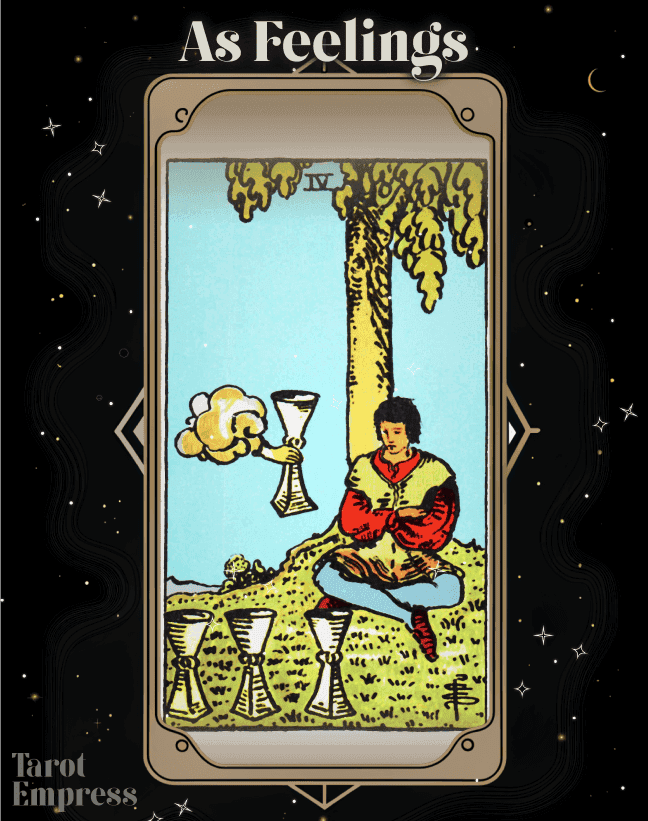
Four of Cups as Feelings: Reversed & Upright Meaning of Discontent, Reflection, and Renewed Appreciation
Grasping the essence of the 4 of Cups as feelings draws us into its profound messages about the heart's search for deeper fulfillment and the reflection needed to achieve such contentment. This understanding highlights how its meaning shifts when presented in upright versus reversed forms, offering a rich array of insights into our emotional experiences.